Listen now on Apple, Spotify or YouTube
In This Edition
- Analysts confident in Switch 2 despite pricing
- GAME on Switch 2 physical costs vs digital
- What is the third-party.opportunity on Nintendo?
Welcome back to The Game Business Newsletter, and what a mixed day for the console market. Nintendo Switch 2 was announced with a huge slate of games. But US Government tariffs on Vietnam, China and Japan have played havoc with the pricing.
In this week’s Switch 2 special Newsletter, we discuss the third-party opportunity on Nintendo’s new console, chat with a leading retailer on its pricing, and share analyst expectations for the machine’s first year.
You can read all the key facts, quotes and insight below. Alternatively, check out The Game Business Show above, featuring co-host Lucy James, plus guest appearances from GAME’s Nick Arran, analyst Matthew Ball and more.
Analysts remain bullish on Switch 2 despite pricing
Video game analysts have maintained their sales expectations for Nintendo Switch 2 hardware following the console’s reveal yesterday.
Most analysts anticipated a $399 price point for Nintendo Switch 2, but the final cost came in at $450, with a similar price set globally (with the exception of Japan, which has a cheaper non-multilingual version).
Nintendo may have been considering the potential impact of US Government tariffs with its pricing. Hours after the Switch 2 Direct was aired, the US announced a 46% tariff on goods from Vietnam (where Nintendo Switch 2 is manufactured) and a 24% tariff on Japan (where Nintendo Switch 2 cartridges are made). Of course, it’s possible that prices may need to rise again.
For now, analysts have maintained their strong sales estimates for Nintendo Switch 2.
Circana estimate 4.3 million Switch 2 sales in the US by the end of the year
Wedbush’s Michael Pachter predicts Switch 2 will shift 18 million units globally by June 2026
Niko Partners anticipates 14.5 million shipments by the end of 2025.
Ampere believe the global sell-through will reach 13 million units this year, rising to 31 million by the end of 2026.
“While there is justifiable concern over the impact of US tariffs on demand, we do not expect the price point to impact early adoption,” says Piers Harding-Rolls, head of games research at Ampere Analysis.
However, all analysts we spoke to are cautious about Switch 2’s ability to match the 150m+ global lifetime sales of the original.
Retailer GAME: Digital Switch 2 games being cheaper than physical is a ‘challenge’
Nintendo’s decision to list digital games for a lower price than physical games is a ‘challenge’ and a ‘tough message’ for consumers, says UK retail chain GAME.
The retailer’s managing director Nick Arran says he’s excited by the new console, and predicts that GAME’s pre-order allocation will disappear “in minutes, not hours“. He feels the price of the console is “really great” and that although the software prices seem high (with Mario Kart World coming in at £75) he thinks it’s necessary.
“It seems expensive,” he tells The Game Business. “But I remember walking to Woolworths spending £50 on Nintendo 64, and that was nearly 30 years ago.
“And games need to get more expensive. As a retailer, we’re selling games for the same price we were selling them 10 years ago, but our costs keep going up [and] publisher costs are going up. Bold move [to go to] £75, but it does need to happen.”
“Bold move [to go to] £75, but it does need to happen.”
If there was one disappointment for GAME, however, it’s the decision to list digital games for a lower price than physical.
Mario Kart World has a physical price of £74.99, while the digital price is £66.99. Donkey Kong Bonanza is listed as £66.99 for the boxed version, but £58.99 for the digital edition.
“It’s a challenge,” Arran admits. “Nintendo is predominantly physical, and it’s proud to be physical. To make the move before PlayStation and Xbox that digital games will be cheaper than physical, it’s a bold move and it will be a bit of a challenge for us as a retailer.
“And it’s a tough message for a customer when there are differences in prices if they prefer physical. It’ll be interesting to see how it goes. It is not going to stop us in terms of the support we’re going to give Switch 2 and Nintendo. And hopefully it won’t have too much of an effect on physical sales. As a retailer, physical is obviously important to me. But I am also a strong believer that gaming is an important media that needs to have physical. If you’re spending £75/£70 on a product, it’s the tangible value that can sit on the shelf and be in your collection. Hopefully this strategy doesn’t impact that.”
He adds: “To be a cartridge-based format, with bigger cartridges required… I get it, I understand it. It’s just a bold move to make.”
And what about the stock levels he’s seeing for launch?
“There’s never enough of a new console, but that’s what makes it exciting. There will be huge demand. Some of our competitors have gone on sale already and have sold out. People are going to have to be quick.”
Game studios “desperate” for Switch 2 dev kits
Video game developers are “desperate” to get hold of Switch 2 dev kits to capitalise on the launch of Nintendo’s new machine.
Nintendo has prioritised big name publishers and partners for the initial batch of Switch 2 dev units, alongside selected developers able to deliver games for the launch window, The Game Business understands.
Most of the studios we spoke to hadn’t received kits yet, but were hoping to hear news now the console announcement has been made. One AA studio, who felt they could have had a game ready for the Switch 2 launch, told us they were initially frustrated by Nintendo’s silence.
“New console audiences are often willing to try new things at the start, so we were desperate to get our hands on dev kits early,” said the studio co-founder. “Nintendo has finally responded to us, but we still don’t think we’ll get anything for a few months.”
I spoke to numerous indie publishers about the Switch 2 during GDC, and although every one of them were excited by the prospect of the machine, they’re wary of expecting too much. A combination of backwards compatibility with the first Switch, plus increased interest from larger third-party publishers, means they’re not expecting a huge bump in game sales for smaller indie titles when Switch 2 arrives.
Analysis: Does anyone even play third-party games on Nintendo?
The saying goes that people buy Nintendo consoles for Nintendo games, and the data backs that up. In the UK, nearly 60% of all games sold on Nintendo Switch were published by Nintendo, and nine of the Top Ten best-selling Switch games of all time are Nintendo games, with Minecraft the only outlier (Data source: NielsenIQ/GfK Entertainment, Dorian Bloch).
Nintendo’s own data also shows the number of million-selling titles published on Switch in a given year. In the 2020 financial year, there were 27 million-selling Switch titles, and Nintendo was responsible for 18 of them. And that broad trend has continued every year since. Even in the current financial year, for the nine months ending December 2024, there have been 19 million-sellers, and 12 of them were Nintendo games.
However, things have shifted over the course of the generation. Nintendo has been sharing some data around sales of boxed games + digital versions of boxed games (so digital-only games are not included), and how third-party games are faring compared with Nintendo’s first-party efforts.
As you can see from the graph below, in the 2018 financial year (which is the first full year of the Switch), Nintendo-published titles accounted for over 65% of game sold on the platform.
But come the 2021 financial year, and the figures shifted in favour of third-party games. For 2021, 2022, 2023 and 2024, third-party games have accounted for between 52% - 53% of games sold on Nintendo Switch (excluding digital-only titles).
On behalf of The Game Business, data firm Ampere conducted some analysis of the Nintendo eShop in the US. On eShop, we can see third-party games competing more closely with Nintendo’s own first-party releases (potentially due to third-parties willingness to discount their games more aggressively compared with Nintendo).
The firm tracked how many Top Ten appearances games have had on the US eShop between January 08, 2023 and March 30, 2025, and the No.1 game was actually a third-party title in Minecraft (ahead of Mario Kart 8: Deluxe). In fact, in the Top Ten most appearances, exactly half are third-party games (the other four being Stardew Valley, Among Us, Overcooked 2 and Hogwarts Legacy).
Indeed, there are numerous third-party games amongst all the Mario titles. Just Dance 2024 spent 24 weeks in the Top Ten (Just Dance 2023 spent 14 weeks), and FIFA 23 spent ten weeks. It’s not just kids games, either, with Mortal Kombat 11 spending 12 weeks in the eShop Top Ten.
If we look at the longest streaks in the US eShop Top Ten, Mario Kart 8: Deluxe leads the way with 95 consecutive weeks in the Top Ten, followed by Minecraft at No.2 with 66 weeks and Stardew Valley is No.3 with 54 weeks.
There’s no denying that Switch is a more challenging space for third-parties compared with PlayStation and Xbox, but third-parties are gradually increasing their share of the Switch market, and on eShop there are third-party games competing very closely with Nintendo’s own (at least in terms of units).
“We should not think of the fact that Nintendo Switch 2 can run most third-party titles sufficiently as this massive new blue ocean opportunity for publishers”
“For the average console, every ten units of software that are purchased, only one is made by the platform themselves,” says video game analyst and advisor Matthew Ball. “In the case of Nintendo, it's nearly six in every 10 is made by Nintendo.
“[People] are mostly buying [Switch] because Nintendo has made some of the best titles of all time, and you can only get them on the device and the device is affordable. It's not clear how many people are saying I want a portable games device or how many people are saying that I'm looking to play multi-platform or cross platform titles, and the Switch is the device that I'd like to do it on.
“We should not think of the fact that Nintendo Switch 2 can run most third-party titles sufficiently as this massive new blue ocean opportunity for publishers. At the same time, nearly all of the most popular titles globally have not been available on the Nintendo Switch for the last eight years. That means that many of the highest spending, highest engagement, youngest, and therefore lifetime brand-building consumers have been inaccessible. And so that's definitely a meaningful increase opportunity for publishers. And yet at the same time, it's going to be available to all of them. So it's now going to be a new hotly contested platform.”
Nintendo completes Donkey Kong relaunch
Mario Kart World and Game Chat took the headlines from the Nintendo Switch 2 Direct video yesterday. However, the other big Nintendo game on show was a new 3D platform game called Donkey Kong Bonanza.
One of Nintendo’s core strategic focuses over the past decade has been to develop its IP inside and outside of gaming. Over the course of the Switch console generation, the likes of Zelda, Mario, Mario Kart, Luigi’s Mansion and even smaller IP like Kirby, Pikmin and Fire Emblem grew significantly. And Nintendo has been expanding its merchandise business, working with LEGO on specialist LEGO sets, opening museums and theme parks, running events and even taking its IP into cinema.
Donkey Kong is a brand the firm has been steadily ramping up outside of games, with a Donkey Kong-themed expansion to its theme park and a starring role in the Super Mario Bros Movie. There are also reports of a standalone Donkey Kong movie.
However, as a game franchise Donkey Kong has been somewhat dormant during the Switch generation, with just a few remakes or remasters, and occasional appearances in other titles. Donkey Kong Bonanza on Switch 2 represents Nintendo’s efforts to relaunch Donkey Kong in video games, with a new look and (presumably) full merchandise and media expansion program to follow.
That’s it from our special Nintendo Switch 2 edition of The Game Business Newsletter and Show. We will be back next week with an interview with leading game analyst Matthew Ball. See you then.


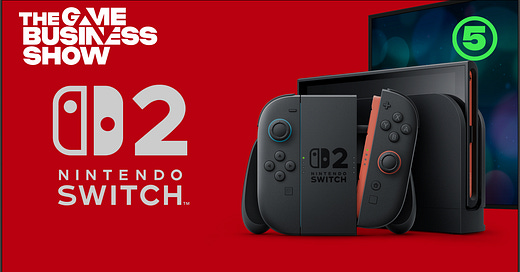


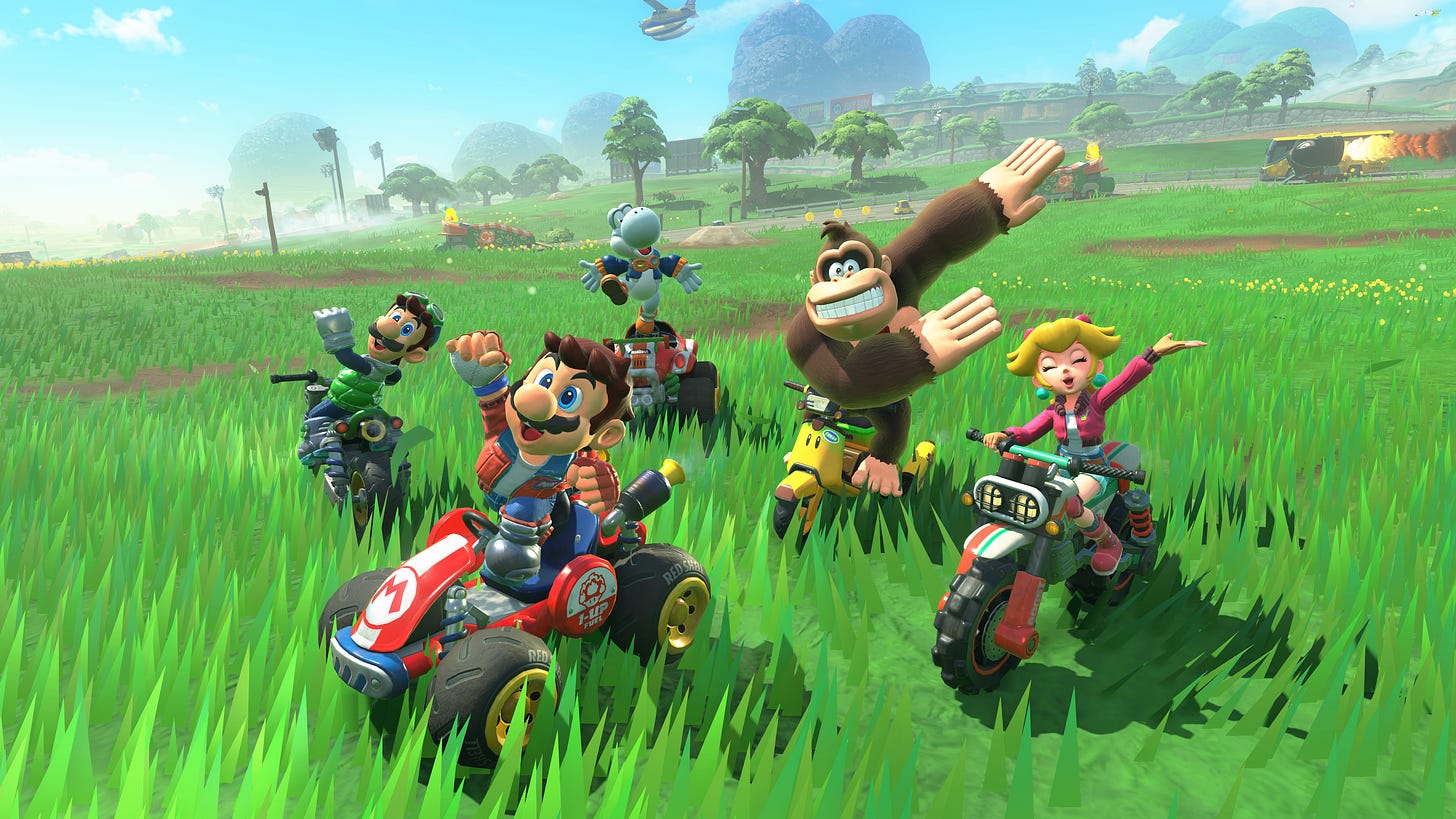
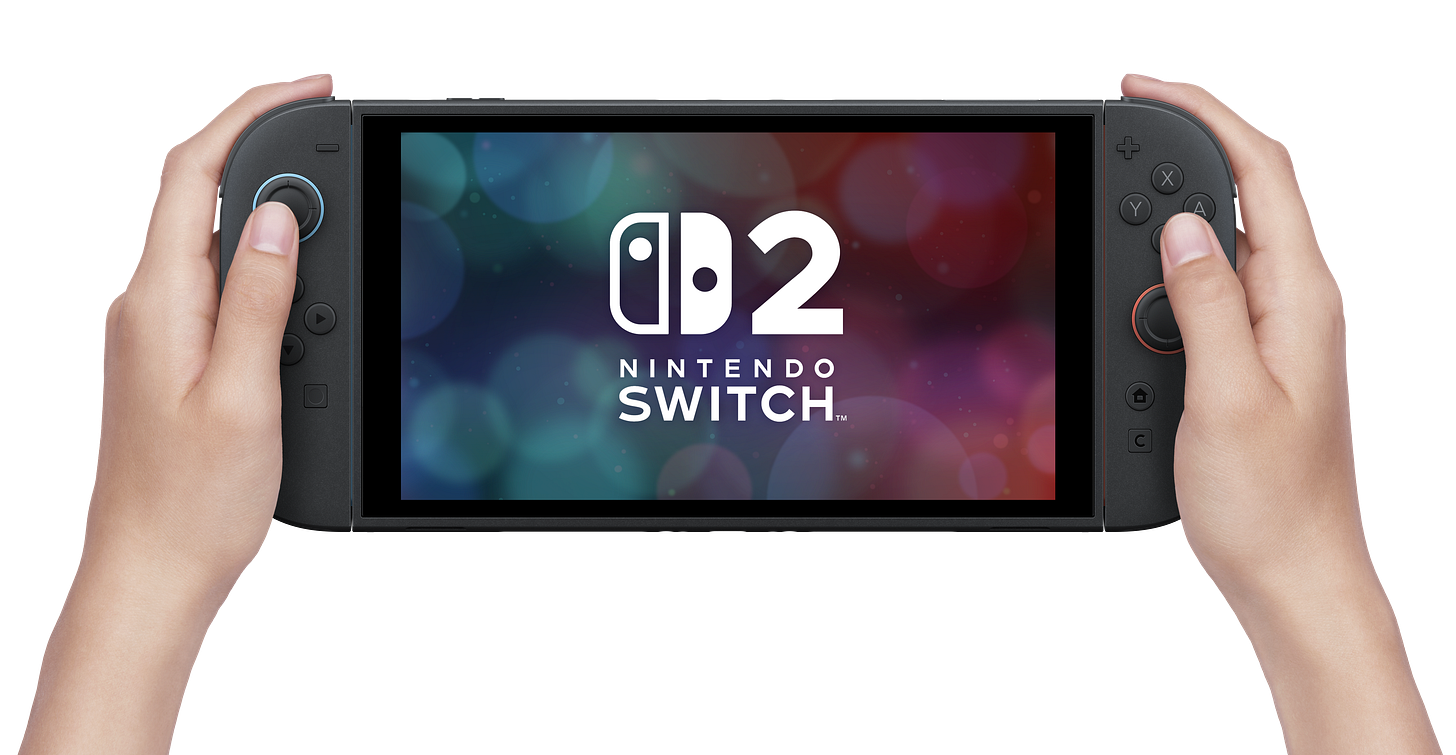
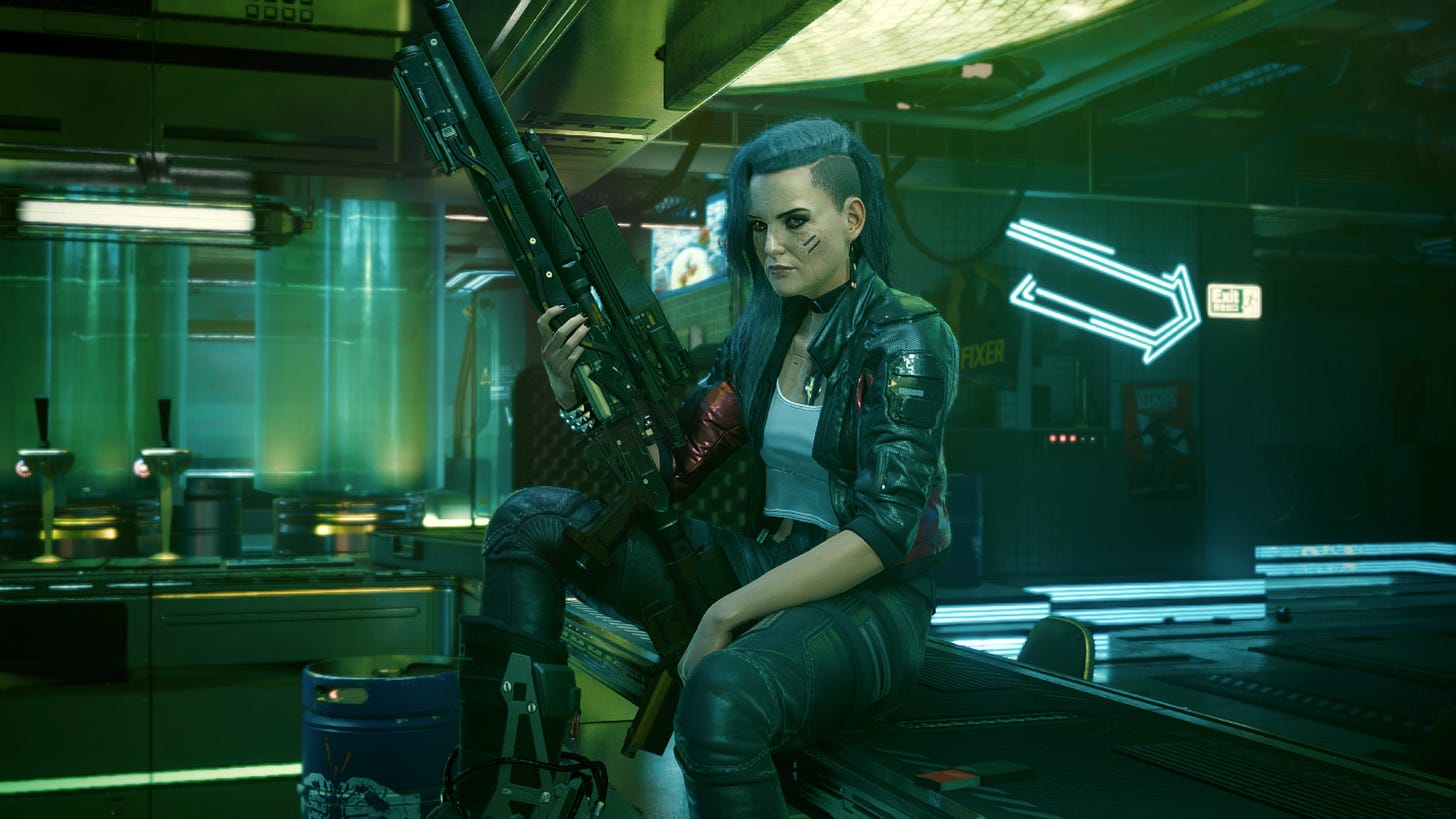
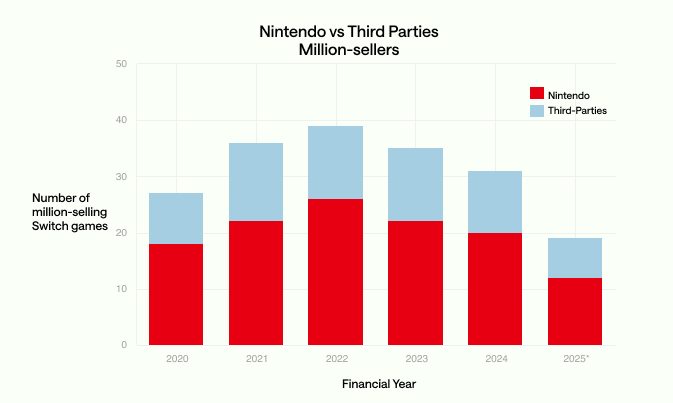
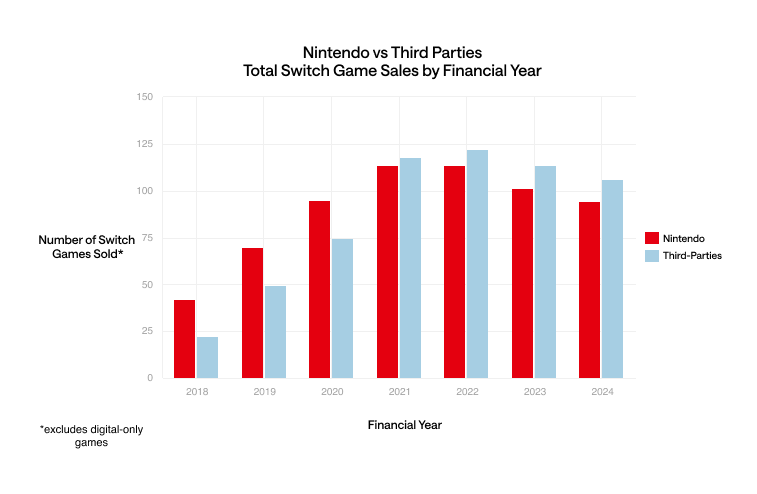
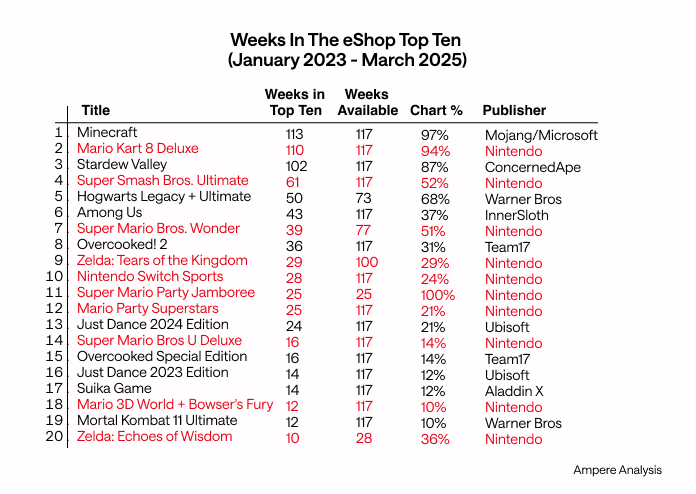
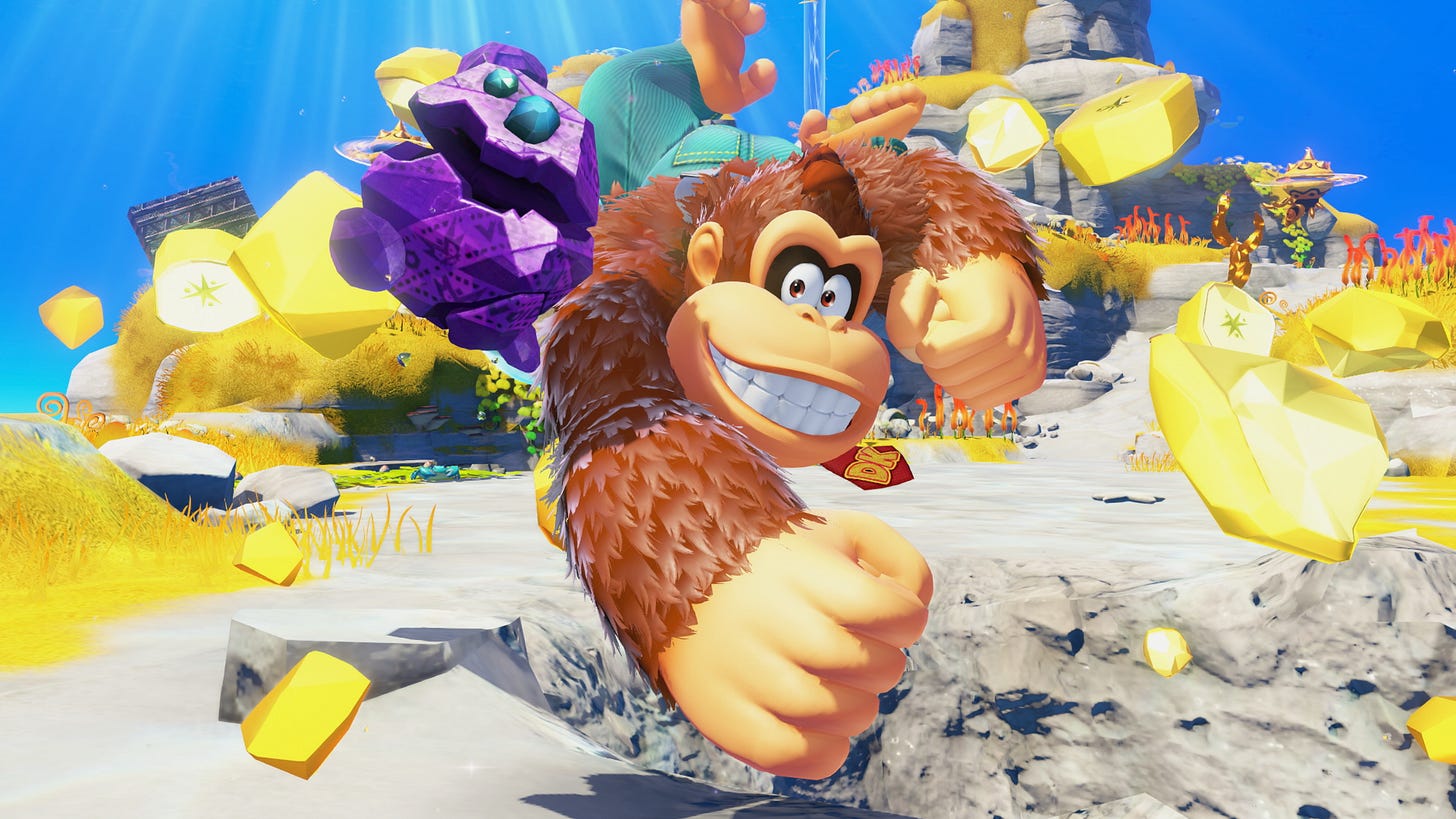






Share this post